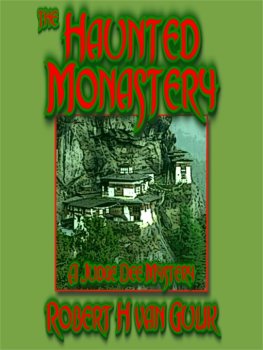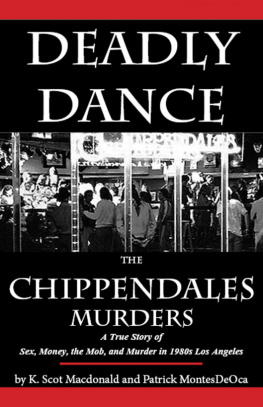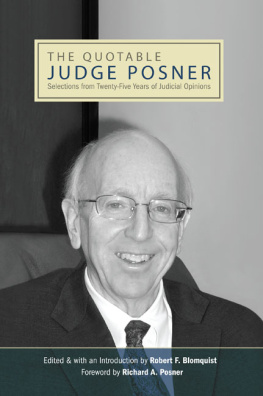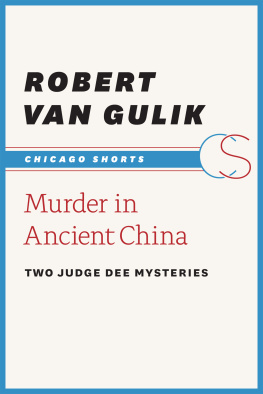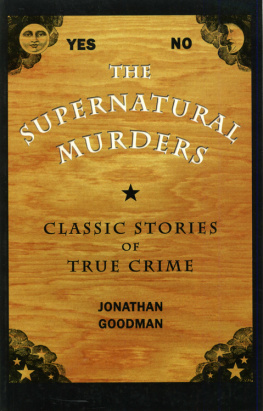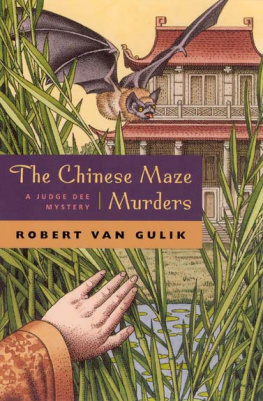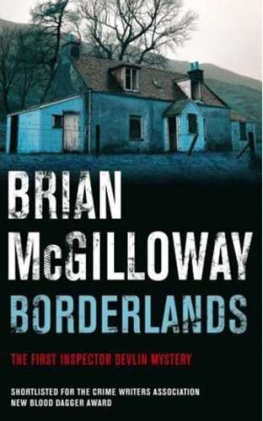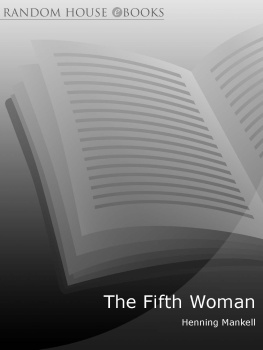
Robert Van Gulik
The Chinese Gold Murders
A JudgeDeeDetective Storywith ten platesdrawn by the author in Chinesestyle
THE CHINESE GOLD MURDERS takes us back to the beginning of Judge Dee's career when, thirty-three years of age, he had been appointed to his first post in the provinces, viz. that of magistrate of Peng-lai, a port city on the northeast coast of Shantung Province.
Then the Tang Emperor Kao-tsung (64-683) had just succeeded in establishing Chinese suzerainty over the greater part of Korea. According to the chronology of judge Dee Mysteries, Judge Dee arrived in Peng-lai in the summer of A.D. 663. During the successful Chinese Korea campaign in the autumn of the preceding year, when they defeated the combined Korean-Japanese forces, the girl Y-soo had been carried away as a war slave. Chiao Tai had taken part in the previous campaign of 661 as a captain over hundred.
The reader will find a pictorial map of Peng-lai in the front of the book, and in the Postscript information on the ancient Chinese judicial system, taken over, with a few changes, from the preceding volume of the series, together with an account of the Chinese sources utilized.
ROBERT VAN GULIK
1. Tribunal
2. Temple of Confucius
3. Temple of War God
4. Temple of City God
5. Drum Tower
6. Nine Flowers Orchard
7. Hostel
8. Crab Restaurant
9. Wharf
10. River
11. Korean Quarter
12. Creek
13. Rainbow Bridge
14. White Cloud Temple
15. Flower Boats
16. Watergate
17. Town House Dr.Tsao
18.Yee'shouse
19.Koo'shouse
20. Restaurant

The parting of three friends
A sword duel on the highway
Judge Dee inspects the library
A meeting in a flower boat
Koo Meng-pin before the bench
Judge Dee questions an old peasant
A cremation oven in a temple
A girl surprised in a mulberry bush
Judge Dee visits a dying man
A philosopher loses an argument
A map of the district Peng-lai is in the front of the book,
A map of a section of Peng-lai.
It should be noted that in Chinese the surname-here printed in capitals-precedes the personal name.
Main Characters
DEE Jen-djieh, newly appointed magistrate of Peng-lai, a town district on the northeast coast of Shantung Province. Referred to as "Judge Dee," or "the judge," "the magistrate," etc.
HOONG Liang, Judge Dee's confidential assistant and sergeant of the tribunal. Referred to as "Sergeant Hoong," or "the sergeant."
MA Joong amp; CHIAO Tai, the two trusted assistants of judge Dec.
TANG, senior scribe of the tribunal of Peng-lai.
Persons connected with "The Case of theMurderedMagistrate"
WANG Te-hwa, Magistrate of Peng-lai, found poisoned in his library.
Y-soo, a Korean prostitute.
YEE Pen, a wealthy shipowner.
PO Kai, his business manager.
Persons connected with "The Case of the Bolting Bride"
KOO Meng-pin, a wealthy shipowner.
Mrs. Koo, ne Tsao, his bride.
TSAO Min, her younger brother.
TSAO Ho-hsien, her father, doctor of philosophy.
KIM Sang, Koo Meng-pin's business manager.
Persons connected with "The Case of theButcheredBully"
FAN Choong, chief clerk of the tribunal of Peng-lai.
WOO, his manservant.
PEI Chiu, his tenant farmer.
PEI Soo-niang, Pei's daughter.
AH Kwang, a vagabond.
Others
HAI-YEH, abbot of the White Cloud Temple.
HUI-PEN, prior of that temple.
TZU-HAI, almoner of that temple.
THREE OLD FRIENDS PART IN A COUNTRY PAVILION; A MAGISTRATE MEETS TWO HIGHWAYMEN ON THE ROAD
Meeting and parting are constant in this inconstant world,
Where joy and sadness alternate like night and day;
Officials come and go, but justice and righteosness remain,
And unchangeable remains forever the imperial way.
THREE men wer silently sipping their wine on the top floor of the Pavilion of Joy and Sadness, overlooking the highway crossing outside the north gate of the imperial capital. Ever since people could remember, this old, three-storied restaurant, built on a pine-clad hillock, had been the traditional place where metropolitan officials were wont to see off their friends leaving for posts in the interior, and where they came again to bid them welcome when, their term of office completed, they returned to the capital. As indicated in the above-quoted poem engraved on its main gate, the pavilion derived its name from this double function.
The sky was overcast, the spring rain was coming down in a dreary drizzle that looked as if it would never cease. Two workmen in the cemetery down at the back of the hillock had sought shelter under an old pine tree, huddling close together.
The three friends had partaken of a simple noon meal; now the time of parting was drawing near. The difficult last moments had come, when one gropes in vain for the right words. All three were about thirty years old. Two wore the brocade caps of junior secretaries; the third, whom they were seeing off, the black cap of a district magistrate.
Secretary Liang put down his wine cup with a determined gesture. He said testily to the young magistrate, "It's the fact that it's so completely unnecessary that irks me most! You had the post of junior secretary in the Metropolitan Court of justice for the asking! Then you would have become a colleague of our friend Hou here, we could have continued our pleasant life together here in the capital, and you-"
Magistrate Dee had been tugging impatiently at his long, coalblack beard. Now he interrupted sharply.
"We have been over this many times already, and I-" He quickly caught himself up and went on with an apologetic smile, "I told you that I am sick and tired of studying criminal caseson paper!"
"There is no need to leave the capital for that," Secretary Liang remarked. "Aren't there enough interesting cases here? What about that secretary of the Board of Finance, Wang Yuan-te his name is, I think, the fellow who murdered his clerk and absconded with thirty gold bars from the Treasury? Our friend's uncle Hou Kwang, secretary-general of the Board, asks the Court every day for news, isn't it, Hou?"
The third man, who wore the insignia of a secretary of the Metropolitan Court, looked worried. He hesitated somewhat, then replied, "We haven't got a single clue yet to that scoundrel's whereabouts. It's an interesting case, Dee!"
"As you know," Magistrate Dee said indifferently, "that case has the personal attention of the president of the Court himself. All you and I have seen of it to date is a few routine documents, copies! Paper, and more paper!"
He reached for the pewter wine jug and refilled his cup. All were silent. After a pause Secretary Liang spoke.
"You could at least have chosen a better district than Peng-lai, that dismal place of mist and rain, far away on the seacoast! Don't you know the weird stories they tell about that region since olden times? They say that on stormy nights the dead rise there from their graves, and strange shapes flit about in the mist that blows in from the ocean. They even say that weretigers are still slinking about in the woods there. And to step in the shoes of a murdered man! Everyone in his senses would have refused that post if it were offered to him, but you even asked for it!"
Next page

